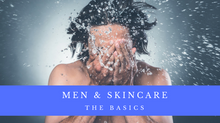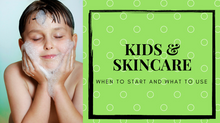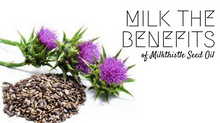Sulfates & Skincare - What You Need to Know to Make Healthy Decisions for Your Skin and Your Hea
- Aug 14, 2018
- 3 min read

Have you noticed something new while walking down the beauty and skincare aisles at your local drugstore? Amidst the claims of “paraben-free,” “no silicones,” and “non-comedogenic,” there is a new addition…”sulfate-free.” Although many consumers feel somewhat educated about harmful ingredients in their skincare, the danger of sulfates is leaving some us feeling clueless. What are sulfates? Why are they bad? Should I avoid them in my skincare? Let’s get to the bottom of the truth on some of these questions!
What are sulfates exactly?
When it comes down to it, sulfates are rather aggressive detergents that are made of sulfur-containing mineral salts. The ones that you may be most familiar with are Sodium Laureth Sulfate (SLES), and Sodium Lauryl Sulfate (SLS). Their use first originated in the hair care industry in the 1930’s to make shampoos lather and foam. Not only were these products powerful cleansers, they were also inexpensive, so the products containing sulfates quickly expanded into other markets such a household cleaners and skincare. Hence, began a belief that something wasn’t truly clean unless it had a foamy lather applied to it and was literally, squeaky clean!
How do Sulfates Work Exactly?
Surfactants are molecules that can attract both water and oil. Sulfates are a form of surfactant. Because one end of the molecule will attach to oil, and one to water, surfactants are effective cleaning agents because they will attach to grime, but rinse away with water. This is why you’ll find them in everything from shampoos, facial cleansers, dishwashing liquid and laundry detergent!
One of the strangest properties of Sulfates is that they make water “wetter!” Sound weird? Well, imagine this. When raindrops land on your car’s freshly waxed hood, they generally bead up and drip away. But, if you were to mix water with some surfactants and spray down your car, the water would spread out in one even sheath. In essence, the surfactants break the water’s surface tension to get to the dirt!
This all sounds great in theory, right? Why WOULDN’T we want sulfates in everything we’re trying to use to clean things? As it turns out, sulfates are incredibly powerful and cheap—a dangerous combination. They are now so overused that they are stripping off the health and vitality of the exact things they’re simply meant to clean, like our skin and hair!
How do Sulfates Affect My Skin and Hair?
For skin and hair to be healthy, their delicate balance of oil and water must be respected. Using too powerful of ingredients, like sulfates, can strip our skin and hair of all its natural oils that keep us balanced and hydrated. In addition, sulfates wash away all of the beneficial bacteria on our skin’s surface, leaving us vulnerable to bad bacteria and infection.
Feel like your hair is drying out from your shampoo? Sulfates may be to blame! The shaft of your hair is composed of a series of hard, overlapping shells called the cuticle. Shampoos that contain sulfates work their way under this protective sheath and can compromise the moisture and strength of your hair. In addition, this makes your hair take longer to dry. More heat from your blow dryer equals more drying damage to your hair! It’s a nasty cycle and just imagine what they’re doing to your skin if they can do THIS to our hair and scalp!
Ok, so you‘ve made the decision to go “sulfate-free!” Now you’re safe buying any products that are labeled so, right? Nope. Cosmetic companies are crafty and are starting to use chemical compounds that are virtually sulfates, without being called a sulfate due to their molecular structure. This allows them to still say “sulfate-free” on the bottle, but continue to use cheap detergents in their formulations.
Check your labels for these “Sul-fake” ingredients!
Sodium Lauryl Sulfate (SLS)
Sodium Laureth Sulfate (SLES)
Sodium Lauryl Sulfoacetate
Sodium Lauroyl Isoethionate
Sodium Lauroyl Taurate
Sodium Cocoyl Isoethionate
Sodium Lauroyl Methyl Isoethionate
Sodium Lauroyl Sarcosinate
Disodium Laureth Sulfosuccinate
Alright, so I’ll avoid sulfates, but what CAN I use?
You can avoid sulfates all you want, but your skin and hair still need to get clean, right? Fortunately, nature provides other, more gentle surfactants, that can effectively clean your skin without over-stripping or over-drying! Certain saps from trees, like the ingredients Saponaria, work into a wonderful lather and keep your skin balanced. In addition, full product lines, like Kosmetikos, have gone 100% sulfate free in all of their products to ensure that you can make easy, effective and SAFE choices in your skincare
























